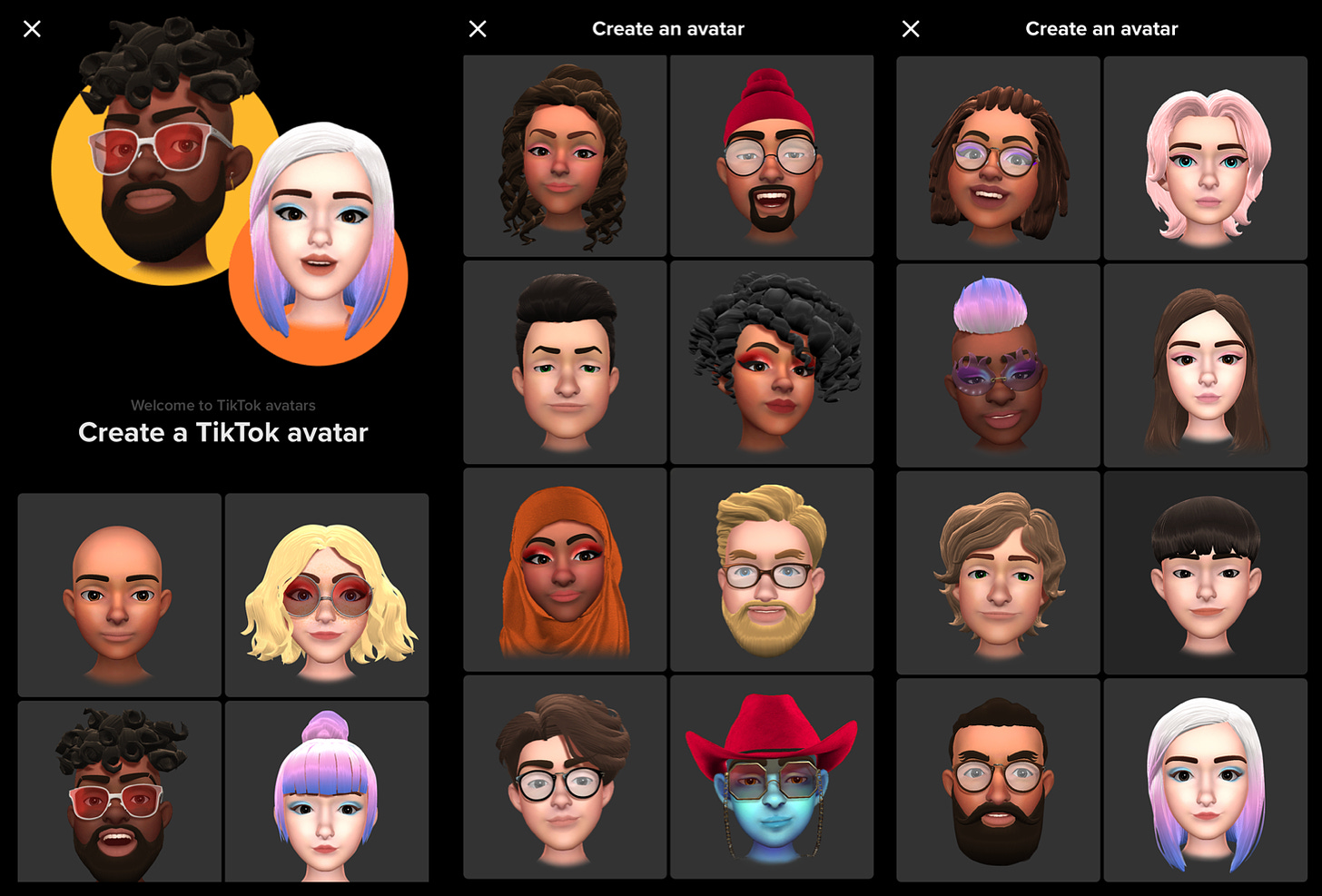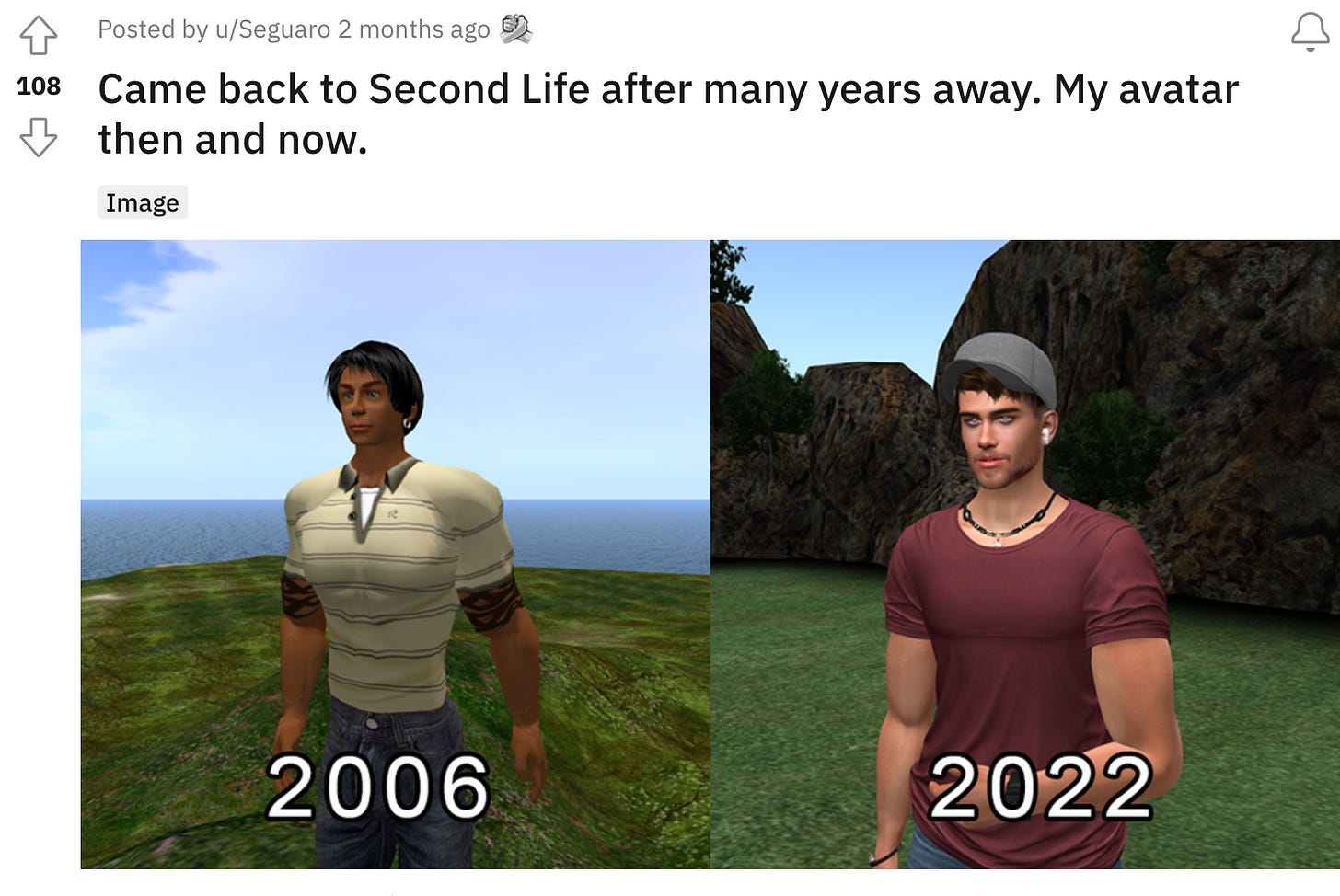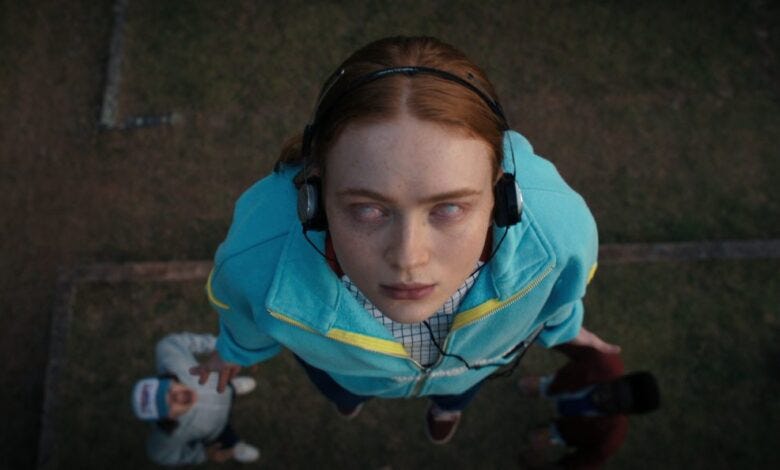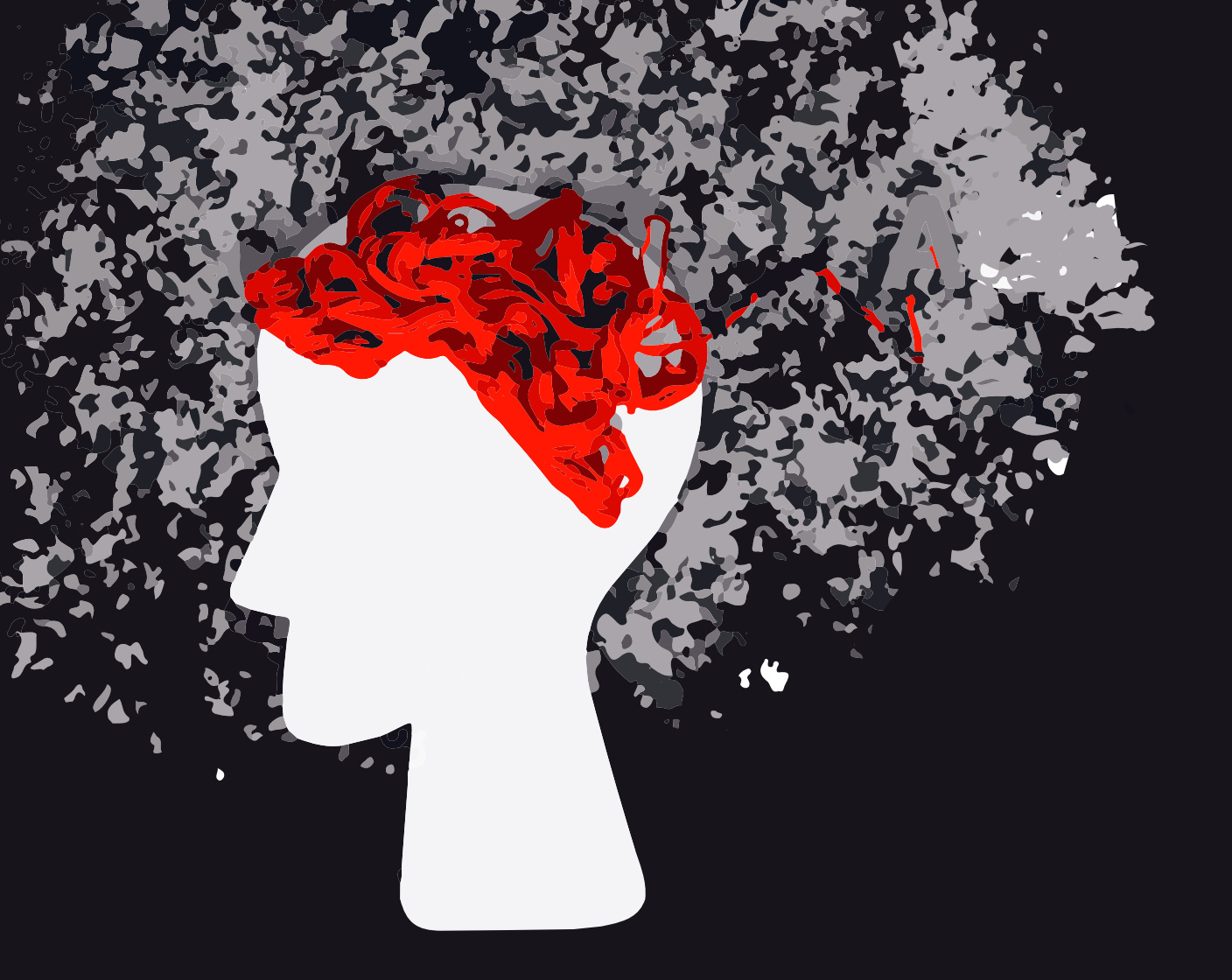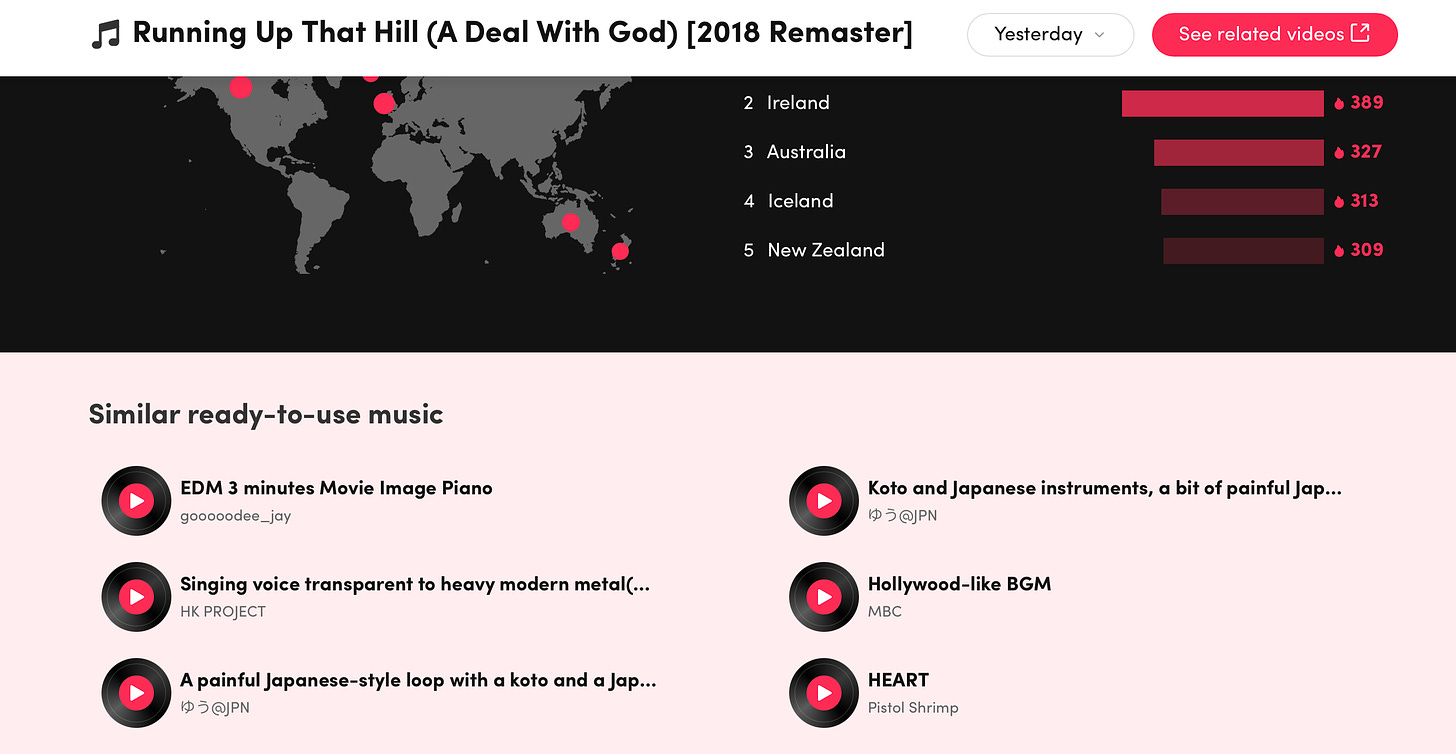Hello World.
This is Understanding TikTok – your weekly update. My name is Marcus.
Today we talk about:
🧎 TikTok Avatars
⛰️ Kate Bush renaissance
🇰🇪 TikTok & the Kenyan general election
🧎TikTok Avatars
TikTok is launching a new feature that lets users turn themselves into custom animated avatars in the style of Apple’s Memoji, Snapchat’s Bitmoji, and Meta’s Avatars (The Verge). That totally makes sense because all platforms are copying each other all the time not to lose the grip, miss the next big thing and keep or gain users.

In the near future, digital avatars will become a critical representation of our real selves, as we interact more and more in wholly virtual spaces - which is why several platforms are now trying to come up with the best 3D avatar tools to better align people with their apps (Social Media Today).
Here is a How To Guide. In Short: To get started, open the effects section in the TikTok app and search for the Avatar effect. From there, you'll be able to customize your Avatar to fit your preferences. Here is TikTok’s press release (Express Yourself).
And here is The Verge again pointing to something interesting: “TikTok’s avatars have the potential to be used by pseudonymous content creators. This is a trend that’s already taken off on YouTube with VTubers and could certainly be embraced on a platform like TikTok. Users can even combine their custom avatars with TikTok’s preexisting voice effects for further anonymity.”
Meanwhile i have been scrolling through some older psychology papers to learn a bit more about “the avatar as extended and extraordinary self”, given the fact that there is “evidence for avatar-self merging” but ”not any reduction in discrepancy between the actual self and ideal self”. Where is the extensive Real Life article on Avatars when you need it?
⛰️ Kate Bush renaissance
It is not the first time that TikTok users have rediscovered the unique karma, brilliance and extraordinaryness of Kate Bush. Before “Running up that hill” (Stranger Things) it was “Wuthering Heights” (Dark Academia) and before that it was “Babooshka” (WitchTok).
Back in January 2021 the NME wrote: Kate Bush has quickly settled into her rightful place on so-called ‘WitchTok’, with ‘Babooshka’ soundtracking content about tarot cards, love potion making and gothic-inspired videos with dramatic outfit changes, not too dissimilar from her original music video.
In May/June 2022 it is the Netflix series Stranger Things and – of course – TikTok. “three years into reporting on tiktok trends, i’m still fascinated by how the platform closes the pop culture feedback loop… cultural convos continue on tiktok at record pace, with archival material resurfacing for new 👂+ 👀”, tweets Alice Ophelia.
The song speaks to misfits and of desperation, themes as relevant to teens in 2022 as they were in 1985 (The Conversation). Now the song is No. 1 on iTunes, Kate Bush Nabs First U.S. Top 10 (Vulture) and says “Thanks very much” on her brilliant website.
🇰🇪 TikTok & the Kenyan general election
Kenya’s 2022 general election is slated for August 9, and in the run-up to voting, social media platforms in the country are teeming with political disinformation, writes Odanga Madung in his Mozilla report: From Dance App to Political Mercenary: How disinformation on TikTok gaslights political tensions in Kenya.
Altogether, Madung found hate speech and disinformation in 130 videos that accrued over 4 million views after being shared by 33 TikTok accounts. All of them appear to violate the company’s terms of service. Many pieces of disinformation Madung found were “synthetic content,” videos created to look like they might be from an old news broadcast, or they use screenshots that appear to be from legitimate news outlets (Wired).
Facebook, WhatsApp, and Twitter were each heavily scrutinized for spreading disinformation in Kenya’s 2017 general elections — which also ended in violence, with police officers killing at least 33 people. Since then, TikTok has risen to prominence in the country, creating a new medium for influencing Kenyan politics. Over 60% of Kenyan users aged 16–64 surveyed in Hootsuite’s Digital 2022 report used TikTok each month (Rest of World).
🍦 More
TikTok’s Creative Center has an interesting feature for marketers and brands, writes Ryan Broderick: There is a section called ‘Similar ready-to-use music,’ which you can find at the bottom of the analytics page for songs that are trending on the app. TikTok now suggests a bunch of royalty-free music that they can use instead of a trending sound like Running Up That Hill. “I went through a bunch of them and I wouldn’t say any of them are particularly close to the real thing, but it’s interesting that this is a problem that’s being acknowledged.”
As always – Rest of World (an international nonprofit journalism organization) has done some brilliant reporting: Inside the risky world of “Migrant TikTok” by Betsy Joles discusses videos like this one and argues that these offer valuable information and as Amine Ghoulidi, a Ph.D. candidate at King’s College London points out: The content helps mainstream the very idea of migration.
TikTok triggered a books revolution. Stop me if you think that you've heard this one before, but The Guardian has a new article on #BookTok: ‘After lockdown, things exploded
And: TikTok can now help stop your infinite scrolling. A new screen time dashboard will summarize your usage. (The Verge)
And: A PR Firm Is Paying TikTok Influencers to Promote Liberal Causes and Hype Democrats’ Middling Accomplishments (Vice)
This is the end.




